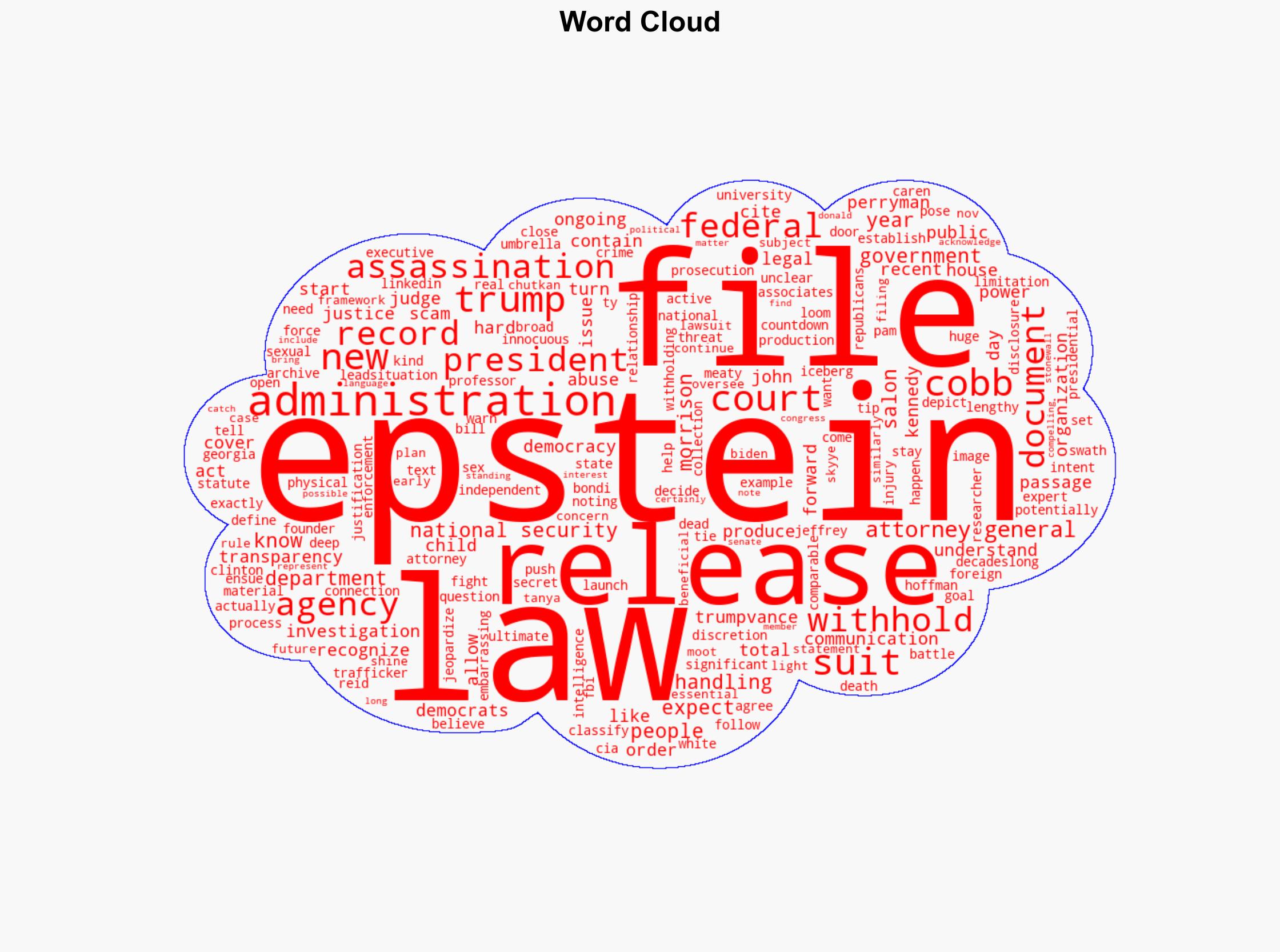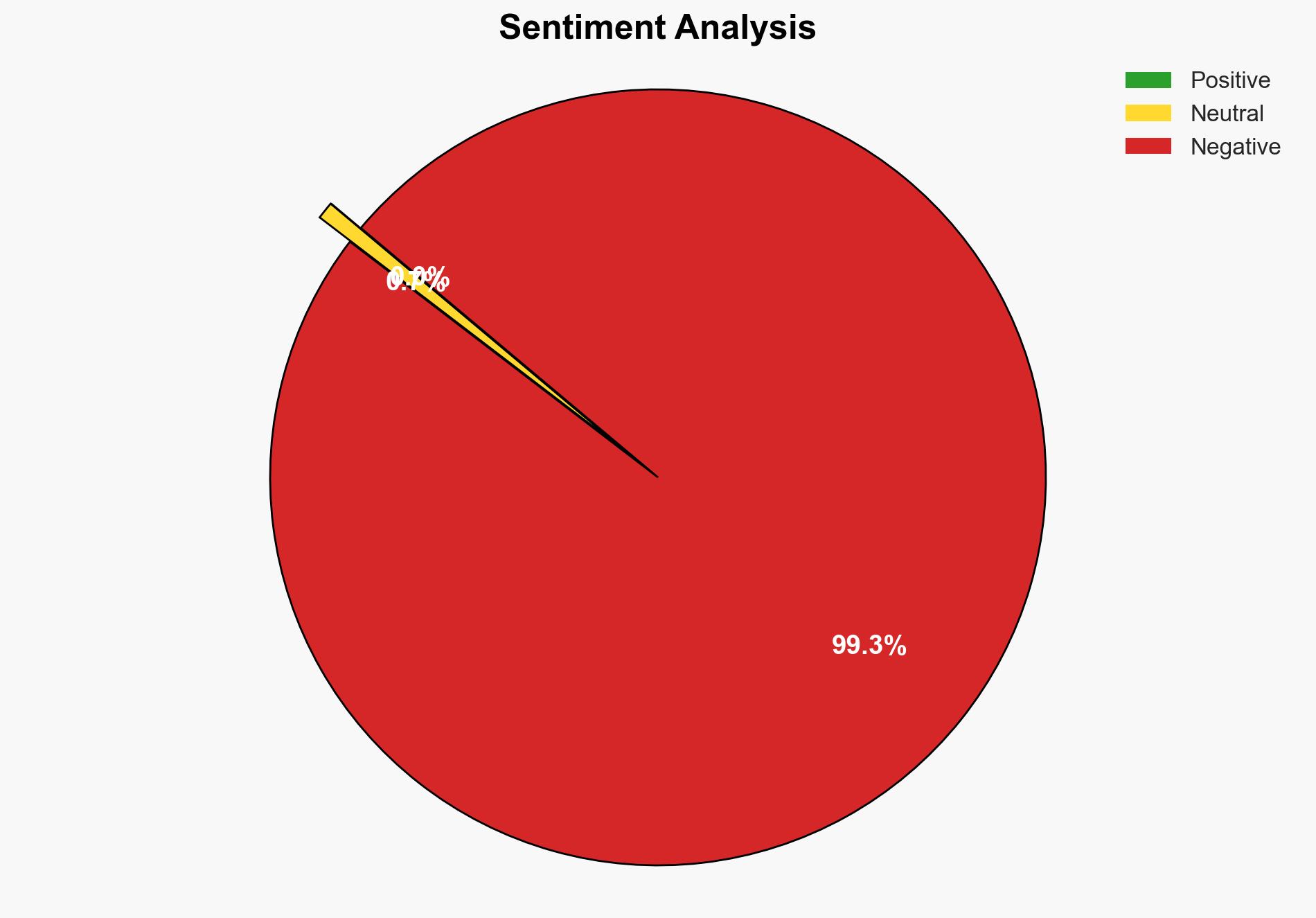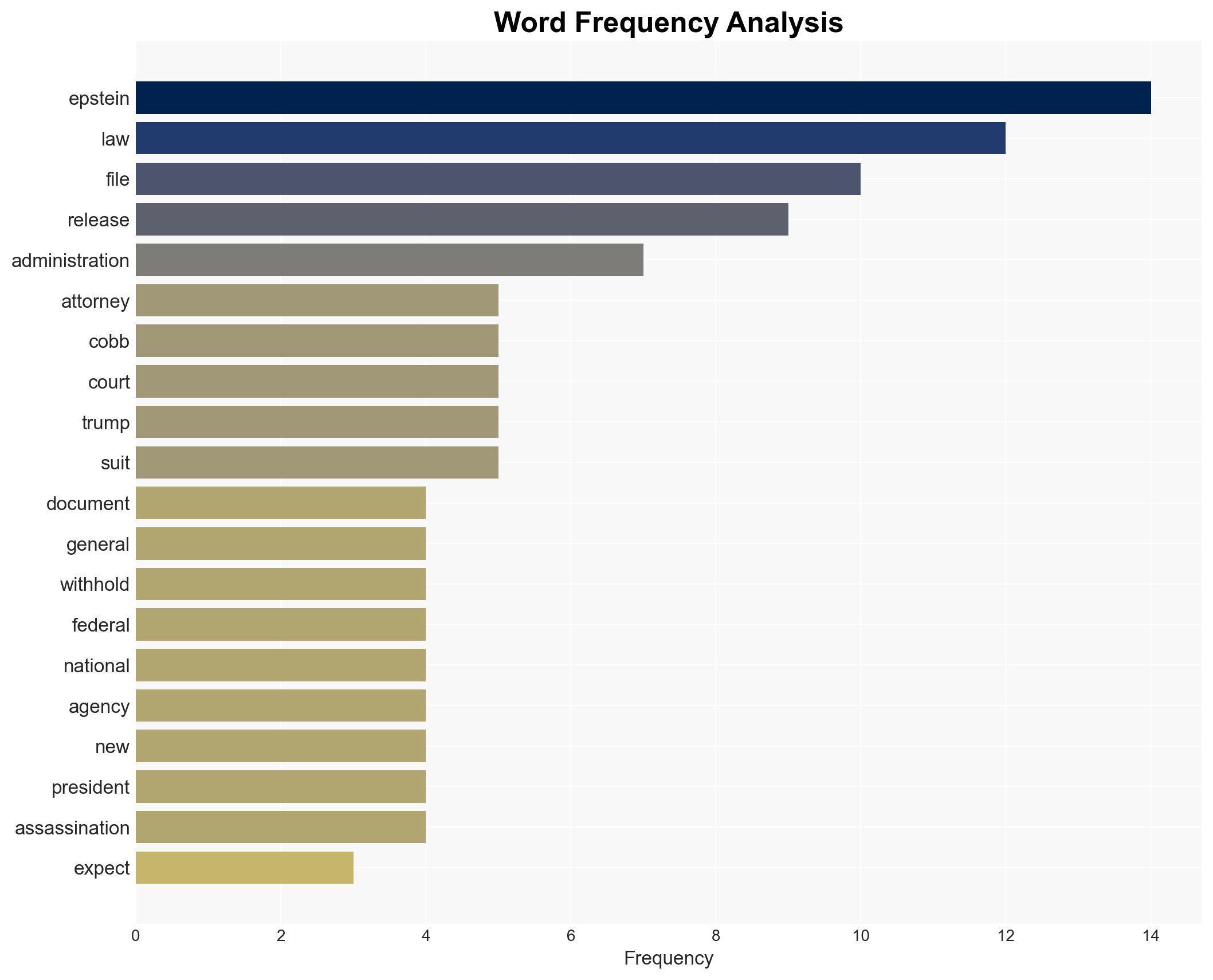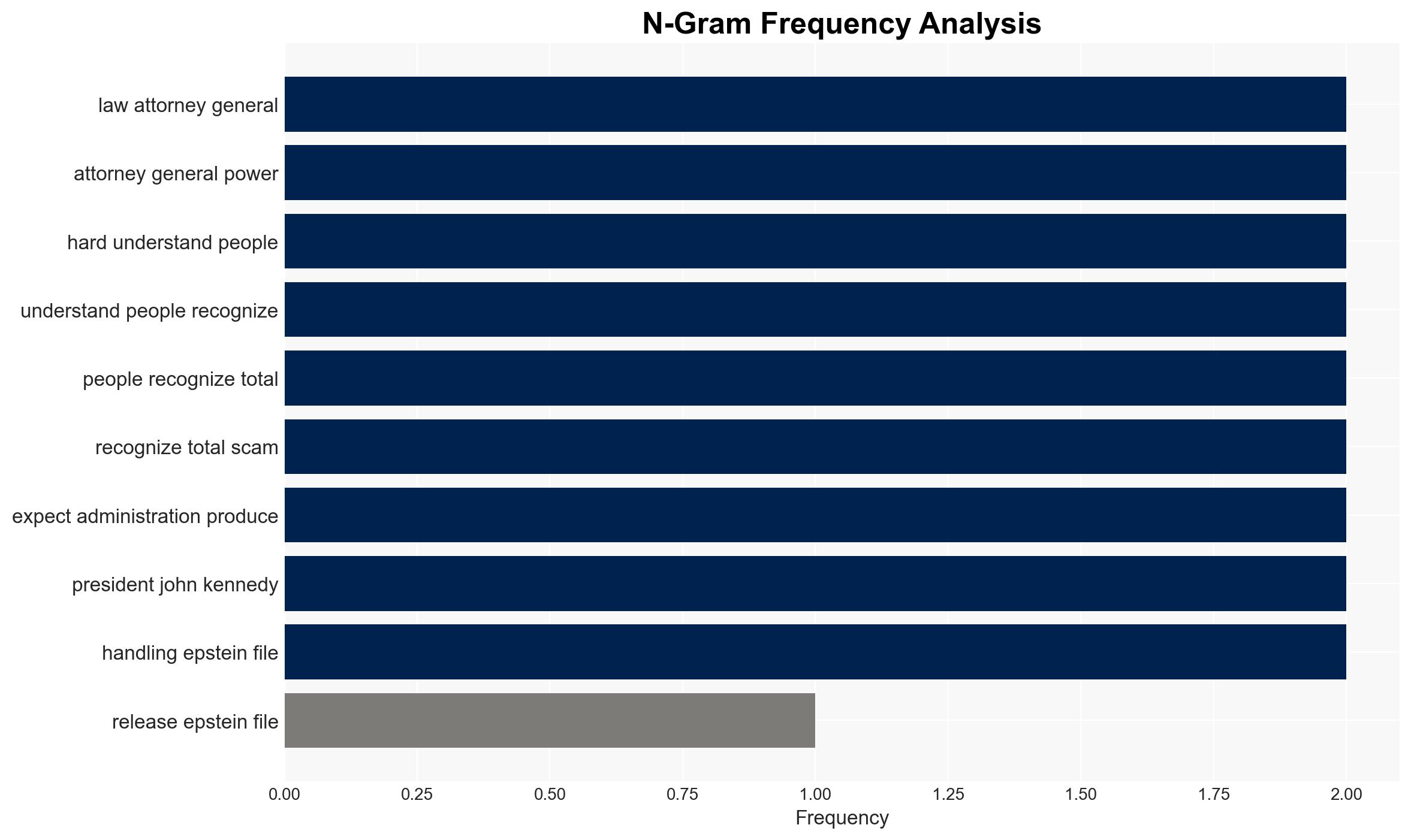Ongoing Battle Over Epstein Files Highlights Challenges in Transparency and National Security Concerns
Published on: 2025-11-26
AI-powered OSINT brief from verified open sources. Automated NLP signal extraction with human verification. See our Methodology and Why WorldWideWatchers.
Intelligence Report:
1. BLUF (Bottom Line Up Front)
With a moderate confidence level, the most supported hypothesis is that the Epstein files will be selectively released, with significant portions withheld under national security and ongoing investigation justifications. This selective release may be used politically to target opponents while protecting allies. Recommended action includes preparing for legal challenges and monitoring political exploitation of the released information.
2. Competing Hypotheses
Hypothesis 1: The Epstein files will be released in a heavily redacted form, citing national security and ongoing investigations, to protect sensitive information and individuals.
Hypothesis 2: The Epstein files will be used as a political tool, with selective disclosures aimed at embarrassing political opponents while shielding allies.
Hypothesis 1 is more likely due to the legal framework allowing extensive discretion in withholding information and historical precedent of similar cases. However, Hypothesis 2 remains plausible given the political context and past behavior of involved parties.
3. Key Assumptions and Red Flags
Assumptions: The Justice Department will act within legal boundaries; there is genuine national security risk in the files.
Red Flags: High discretion given to the Attorney General; potential bias in decision-making; historical lack of transparency in similar cases.
Deception Indicators: Public statements that contradict actions; selective leaks to media with political motives.
4. Implications and Strategic Risks
The selective release of Epstein files could lead to political escalation, with parties using the information to attack opponents. This may result in increased polarization and potential legal battles. There is also a risk of cyber threats if sensitive information is leaked or hacked. Economically, entities linked to Epstein may face reputational damage, impacting market confidence.
5. Recommendations and Outlook
- Prepare legal teams for potential lawsuits challenging the withholding of information.
- Monitor political narratives and media coverage for signs of strategic leaks.
- Engage with cybersecurity experts to protect sensitive data from potential breaches.
- Best Scenario: Transparent release of files with minimal redactions, leading to accountability and closure.
- Worst Scenario: Extensive redactions and selective leaks exacerbate political tensions and undermine public trust.
- Most-likely Scenario: Partial release with significant redactions, leading to legal challenges and political exploitation.
6. Key Individuals and Entities
Pam Bondi, Ty Cobb, Caren Morrison, Donald Trump, Bill Clinton, Reid Hoffman, Tanya Chutkan, Skyye Perryman.
7. Thematic Tags
Structured Analytic Techniques Applied
- Cognitive Bias Stress Test: Expose and correct potential biases in assessments through red-teaming and structured challenge.
- Bayesian Scenario Modeling: Use probabilistic forecasting for conflict trajectories or escalation likelihood.
- Network Influence Mapping: Map relationships between state and non-state actors for impact estimation.
Explore more:
National Security Threats Briefs ·
Daily Summary ·
Support us





